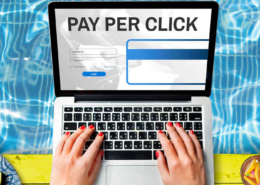Airbnb Taxes Guide – The Essential Elements To Consider
Airbnb Taxes guide is a helper for all the Airbnb entrepreneurs. Airbnb business is comparatively easy to set up, but like any other business, you will have to deal with the taxes. Airbnb taxes are a huge responsibility for every Airbnb entrepreneur. You can not take Airbnb taxes lightly or omit any important details. Airbnb taxes and accounting can be a little complicated, but with dedicated work and proven techniques, you can easily deal with them. Thus, the Airbnb Taxes guide will assist you in dealing with accounting.
The fundamental technique to get the Airbnb taxes right is to include all the necessary elements. Airbnb taxes guide will show you the path to all these essential items. The biggest mistake an Airbnb host can do is ignore the important details and later land into troubles.
To help you with the complex taxes and accounting this Airbnb taxes guide will talk about the important items to consider. Let’s find out which items can help you in smoothly doing your Airbnb taxes.
Items To Consider As Per The Airbnb Taxes Guide
1. Find Major Deductions
Did you know you can save from taxes? Yes, it’s true! You bear various expenditures to provide the best service to your guests. However, those expenditures can be beneficial for you as some of them are deductible from Airbnb taxes. If you carefully do your taxes, you will be able to mention the deductibles and save a significant amount from the taxes. Section 179 allows the hosts to deduct the number of assets bought in the given year solely for the use of Airbnb business.
The cost of such assets is deductible from Airbnb taxes if they are bought in the year of filing the tax. Few purchases such as furniture, computer, tangible property for business, the vehicle used for business, etc can be recorded as deductibles. The important thing to remember is to record all these expenses neatly. If you will maintain a record, then only you will be able to claim any deduction.
Another deductible item is depreciating assets. The value of assets depreciates over some time. Depreciation is also considered as an expenditure in business terms. Thus, thus the host calculates the depreciation value of his assets for the given year and mention it as deductibles under Airbnb taxes.
With the safe harbor rule established by the IRS, a host can deduct a specific amount without recording each and every receipt. The safe harbor rule does not demand receipts to support deductions but there is a qualification criterion. Your property should have an unadjusted basis of $1 million or less. Furthermore, the sum total of the expenses should not exceed 2 % of the property on a per building basis. You can use this deduction to introduce an improvement to your property in order to enhance customer experience and grow your Airbnb business.
2. Estimation Is Necessary
Airbnb considers you as an independent taxpayer. You are responsible for all your taxes and business liabilities. This is because the majority of shares economy workers are said to be 1099 contractors. Now here the catch is that every contractor has to pay taxes differently based on the total amount due. For example, if you owe or are estimated to owe $1000 or more than $1000 then you are supposed to pay quarterly tax. If a host fails to estimate the right amount and misses the quarterly tax deadline then he/she will have to pay a penalty. Thus it is important to estimate your tax due for the nearby future.
If your income is more than $400 on Airbnb then you will be identified as self-employed and your taxes will be calculated based on your net income. This is your advantage of being recognized as a 1099 contractor. However, with this status comes responsibilities as well. As you know you have to estimate the future pay, you will have to save for the same. You have to always keep a certain amount with you that can be used to pay the taxes otherwise you will be charged a penalty.
Airbnb taxes are usually due on 12 April but according to the amount you owe the payment duration can change. The estimation process is not that difficult if you study it thoroughly. It simply says that if you owed tax last year then you will have to calculate the estimate this year as well. For this calculation using the formula-
3. 90|100 * Prior Year Tax Liability
First, you have to find out which part of your Airbnb gross income is taxable. Airbnb has set policies for charging Airbnb taxes. If a host rents out his property for less than 15 days then he will not owe any amount of tax to Airbnb. Thus if you are renting your property for any period less than 2 weeks then you won’t have to pay any tax on that income.
There is one more element in the estimation process. The location of your property will decide whether you have to pay the additional Transient Occupancy Taxes (TOT) or not. TOT is location-specific and you will have to research the local tax laws to find the answer. One good thing with TOT is Airbnb generally deducts the tax amount directly from your earning. In some cases, you also have to pay TOT. So, if you are liable to pay TOT please check your income statement, and if Airbnb did not cut the amount automatically then pay the tax before the due date. In any other condition, you will be obliged to pay penalties.
4. Analyze The Changes Carefully
In 2017 the tax brackets were changed by Congress. Due to this change, the standard deduction was doubled. This might seem like good news at the first glance, but when you study the changes in-depth, you will realize that this has increased your difficulties. This rise in the deduction makes it difficult for you to itemize the deductions. The standard deductions have changed so, the process of itemizing the deductions will also change and may create a huge problem for the hosts. Thus, the Airbnb taxes guide suggests to always analyze the changes in your business environment.
The major shock for the hosts managing properties in the high property taxes or high-income tax areas. If you own a premises in New York, your combined deduction on Airbnb taxes is limited to $1000. Similarly goes for the hosts owning properties in New Jersey, New York, and Florida. This can be translated as a restriction on the amount which you can deduct on your federal tax return.
The good news that came through this change was the “pass-thru” The businesses that qualified as “pass-thru” will enjoy a reduction of 20% in taxable income. Airbnb business is also included in the pass-thru business and thus the state located hosts will get a significant 20% reduction. This is a huge relief for the Airbnb hosts.
Tax laws are crucial for your business, so it is always advisable to keep a check on the changing rules and regulations. You have to analyze the changes and try to use it to your benefit. As an Airbnb host and 1099 contractor, you should always save some amount for paying the dues in the future. You should always estimate your future dues to avoid penalties. Furthermore, you should focus on deductibles. If you have the knowledge, then you can effectively use Airbnb taxes to your benefit.
Airbnb taxes are undoubtedly complicated but if you understand the system in-depth and are able to optimize your expenses according to the charges, then you can manage the taxes effectively. Shared home space is a tricky business in terms of taxes. An informed individual with an Airbnb taxes guide can deal with taxes including all the essential elements. Go through the items mentioned in the Airbnb taxes guide in more depth and understand the functioning of Airbnb taxes thoroughly. Airbnb taxes could be time-consuming, and it can lead to late replies to guests and lesser attention to the other business activities. To solve this problem and effectively manage both Airbnb taxes and business you can use Hosty’s Airbnb management software. Let Hosty handle the tasks such as triggered text messages and calendar auto-update while you are dealing with Airbnb taxes. You can use the time saved from using Hosty user-friendly software and the knowledge gained from Airbnb taxes guide to managing your Airbnb taxes.


















